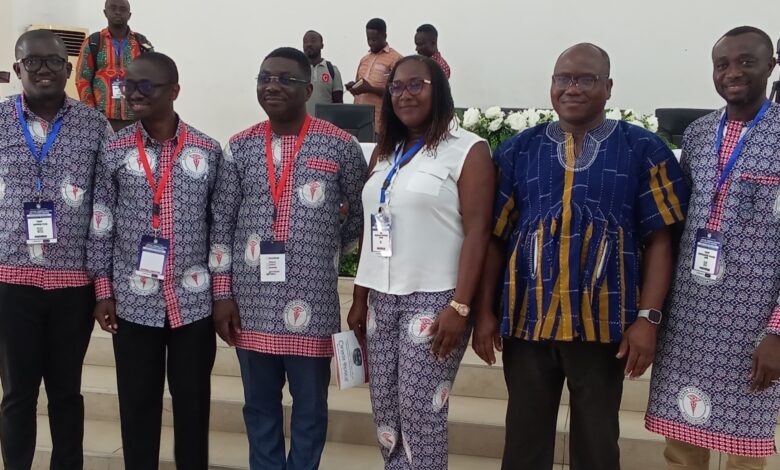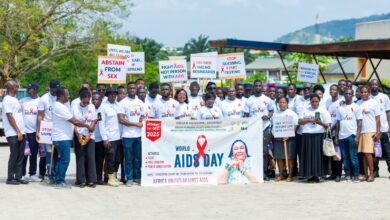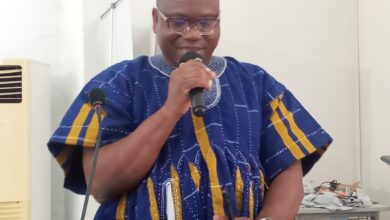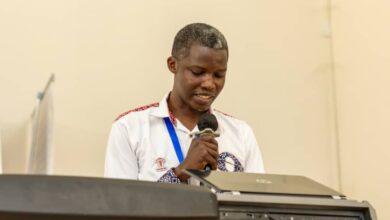Stakeholders Renew Calls for Reforms in Ghana’s Eye Care Sector

Stakeholders in Ghana’s eye health sector have renewed calls for urgent reforms, improved funding, and stronger policy direction to strengthen low vision rehabilitation and ensure equitable access to quality vision care across the country.
The call was made at the 13th Annual General Meeting and Scientific Session of the Ghana Optometric Association (GOA), held at the Kwame Nkrumah University of Science and Technology (KNUST) in Kumasi. The three-day conference, themed “Low Vision Rehabilitation: Breaking Barriers and Building Bridges,” brought together regulators, policymakers, academics, and eye care professionals from across the country and beyond.
“Low Vision Care Is an Act of Justice”
Delivering the keynote address, Dr. Carl Halladay Abraham, a lecturer at the Department of Ophthalmic Science, University of Cape Coast, described low vision rehabilitation as “an act of justice rather than charity.”
He stressed that the rehabilitation of persons with partial sight remains one of the most neglected areas of eye care, despite its immense impact on quality of life and national productivity.
“Across the world, over 295 million people live with moderate to severe visual impairment. In Ghana, about 1.2 million people are affected — nearly the population of the Bono East Region,” Dr. Abraham stated.
He warned that the economic cost of vision loss is substantial, estimating that Ghana loses nearly 350 million dollars annually in productivity and wages due to visual impairment.
The low vision care specialist called for statutory funding for the Ghana Eye Care Secretariat, a comprehensive national policy on low vision rehabilitation, and improved recognition for professionals in the field.
Dr. Abraham humorously noted disparities in global eye health priorities, remarking, “In the WHO monitoring framework, low vision is mentioned only twice, while cataract appears over 70 times. It’s not that we are jealous, but what is good for Bruno, the German shepherd, is also good for Bingo, our local dog.”
He also emphasized the need for inclusive infrastructure that caters to persons with disabilities, insisting that “no single building in this country should be constructed without considering their access needs.”
Council Outlines Reforms in Health Regulation
In a fraternal address, Dr. Shirazu Issahaku, Registrar of the Allied Health Professions Council (AHPC), reaffirmed the Council’s partnership with the GOA and announced a series of regulatory and institutional reforms aimed at strengthening professional standards and service delivery across the allied health sector.
He commended optometrists for their leadership in the formative years of the Council and their continued contributions to policy, ethical practice, and the promotion of quality healthcare in Ghana.
“The theme for this year’s AGM is both timely and visionary. It reflects the profession’s commitment to continuous learning, innovation, and excellence — ideals that lie at the heart of the Council’s mandate,” Dr. Issahaku said.
He revealed that the Council has introduced computer-based licensure examinations, harmonized curricula across allied health training institutions, and set up a Professional Standing Committee to enhance regulation. He also disclosed that the budget for the Ghana College of Allied Health Professions has been integrated into the 2026 financial year to pave the way for its establishment.
Other ongoing initiatives include the digitization of the logbook and indexing systems, the introduction of four mandatory Continuing Professional Development (CPD) modules, and the restructuring of the Council to include three new technical directorates — Education and Examination; Regulation and Compliance; and Policy, Planning, Research, Monitoring and Evaluation.
Dr. Issahaku added that work is progressing to complete the Legislative Instrument (LI) that will operationalize Part I of Act 857 (2013) and to secure a permanent office complex for the Council.
“Our aim is to build a dynamic, transparent, and technology-driven regulatory system that safeguards the public and empowers professionals to deliver the best standards of care,” he affirmed.
Outgoing GOA President Calls for Eye Care Reforms
Outgoing GOA President, Prof. Samuel Bert Boadi-Kusi, in his valedictory address, also called for reforms to enhance professional standards, improve recruitment, and expand access to quality vision care nationwide.
He urged the Allied Health Professions Council (AHPC) and the Ghana Health Service (GHS) to step up recruitment of optometrists into the public sector and introduce incentive schemes to attract practitioners to rural and deprived communities.
“Eye care is not just a profession; it is a calling, a responsibility, and a service to God and humanity,” he told members.
Prof. Boadi-Kusi, who has led the Association since 2022, highlighted several achievements during his tenure, including the introduction of practical CPD programmes, the launch of the GOA Scientific Journal, and groundwork for the establishment of a College of Optometry.
He also cited the introduction of the Refractive Error Awareness Week — described as a global first — as a major milestone that has improved public awareness of eye health.
On member welfare, he said the Association had provided support in disciplinary and health-related matters and explored group insurance schemes for practitioners. However, he expressed concern about persistent delays in insurance claims, noting that over 120 optometric facilities are struggling with unpaid claims, some outstanding for more than two years.
He lauded the University of Cape Coast for upgrading its Department of Optometry to a School of Optometry and Vision Science and introducing postgraduate programmes attracting students from other African countries.
Shared Commitment to Strengthen the Sector
The event concluded with a renewed commitment by all stakeholders to advance the national eye care agenda through collaboration, research, and innovation.
“Low vision rehabilitation is not charity — it is justice,” Dr. Abraham reminded participants. “The barriers are many, but we can build ten bridges for every barrier.”






